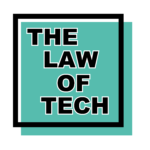
Does a right to explanation in the context of automated decision-making exist, and, if so, what does it entail?
Advances in technology and the capabilities of big data analytics, artificial intelligence and machine learning have made it easier to create profiles and make automated decisions with the potential to significantly impact individuals’ rights and freedoms. As organisations’ big data capabilities have rapidly increased and significantly improved, these practices have gained attention, triggering mixed reactions across a variety of fields, including the legal domain.
While some believe that the right to meaningful information as stipulated in the GDPR also indicates the existence of a right to explanation in the context of automated decision-making, including profiling, there is no single, neat statutory provision labeled the ‘right to an explanation’ in the GDPR. Nevertheless, there is much debate in the field on whether such a right indeed indirectly exists, what the legal basis of such right is, and what such right entails. What is this debate all about, where do we currently stand in this debate, and where are we heading?
In this episode of The Law of Tech Podcast, I explored the right to an explanation in the context of automated decisions with Maja Nišević, PhD Candidate and Marie Skłodowska-Curie Researcher at the University of Verona, Italy.
Follow The Law of Tech on LinkedIn and Twitter to get behind the scenes and receive episode insights. If you enjoyed the episode, please make sure to share it with your network, and feel free to contact Hadassah Drukarch at thelawoftech@gmail.com for feedback and suggestions for future episodes.
